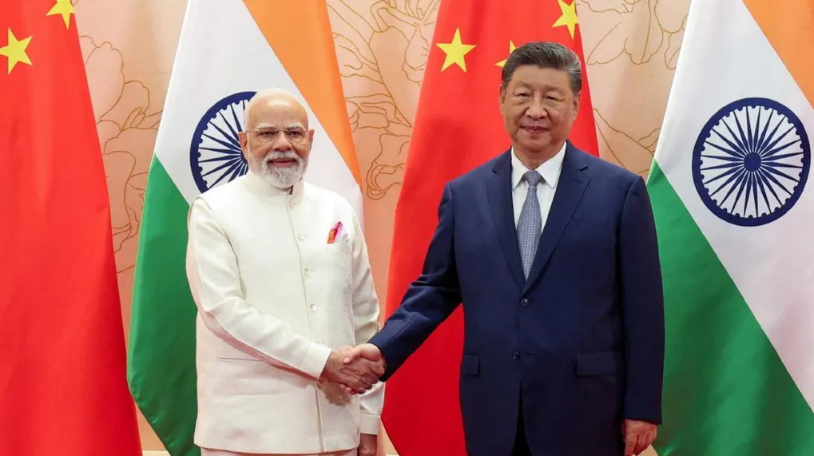China and India have signaled a thaw in their historically tense relations, pledging to be “partners, not rivals” during the Shanghai Cooperation Organisation (SCO) summit in Tianjin. The meeting between Chinese President Xi Jinping and Indian Prime Minister Narendra Modi marks Modi’s first visit to China in seven years and comes after years of border tensions that have strained ties between the two nations.
Speaking on the sidelines of the summit, Xi emphasized the importance of approaching Sino-Indian relations “from a strategic height and long-term perspective,” calling friendship the “right choice for both sides.” Modi echoed the sentiment, highlighting an “atmosphere of peace and stability” between the two countries. In a key development, Modi announced that flights between India and China, suspended since deadly troop clashes on their shared Himalayan border in 2020, would resume, though he did not provide a timeline.
The SCO summit, attended by more than 20 world leaders including Russian President Vladimir Putin, is largely symbolic but provides a platform for member states to discuss shared interests and grievances. Established in 2001 by China, Russia, and four Central Asian nations, the SCO is often seen as a counterweight to Western alliances such as NATO. This year’s summit is overshadowed by global trade tensions, with US-imposed tariffs on Indian goods linked to Delhi’s continued purchase of Russian oil and ongoing sanctions threats against Moscow for its war in Ukraine.
Tianjin has been transformed by the summit, with banners and billboards celebrating the event and tens of thousands of locals gathering at night to witness spectacular light shows on riverside tower blocks. However, the city has also faced severe disruptions. Roadblocks, suspended taxi services, and heavy motorcade traffic have made movement difficult, prompting police to advise residents to avoid travel and rely on nearby shops for essentials.
Despite these challenges, the summit underscores the shifting geopolitical landscape. With the US-India relationship under strain and China deepening ties with both India and Russia, the gathering in Tianjin highlights the strategic recalibrations taking place among the world’s most populous nations and some of its largest economies.

